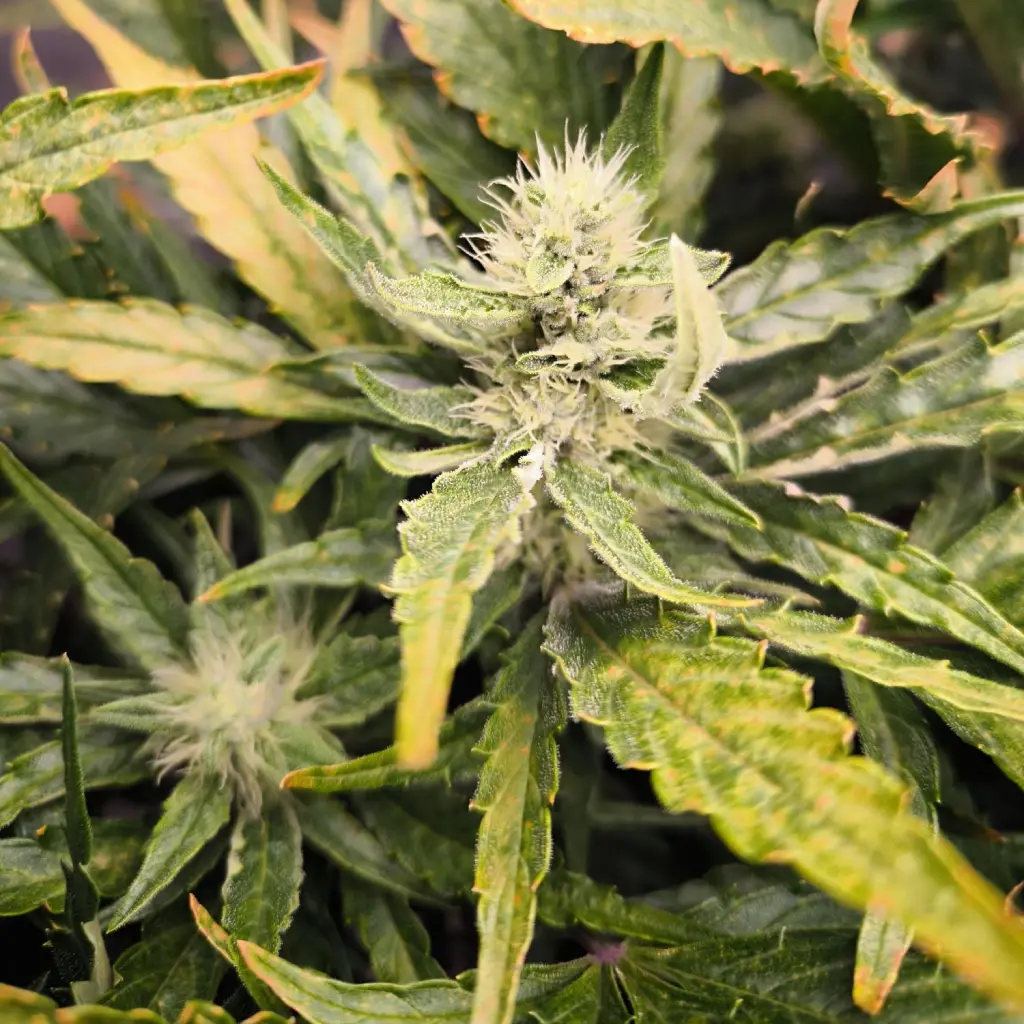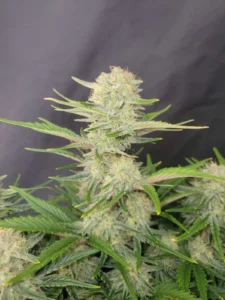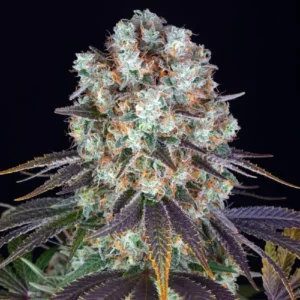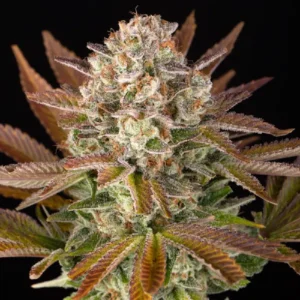Apricot Auto Strain is a compact, aromatic autoflowering cannabis variety prized for its sweet apricot flavor, balanced effects, and beginner-friendly cultivation. Thanks to its robust genetics and fast life cycle, it delivers reliable results in both indoor and outdoor setups. With moderate-to-high THC levels and a slightly indica-dominant profile, Apricot Auto offers relaxing body effects paired with gentle mental stimulation. This grow guide covers everything you need to know from environmental requirements and feeding schedules to harvest timing so you can maximize yield, potency, and flavor.
With THC levels ranging between 18% and 22%, Apricot Auto delivers a well-rounded high suitable for relaxation and creativity. It’s a hybrid leaning slightly towards indica, offering calming effects with a touch of cerebral stimulation, making it a favorite among recreational and medicinal users alike.
Recommended Strains
Apricot Auto
|
|
THC | 26% - 28% (High) |
|
|
Lineage | Orange Juice x Apricot Helix x Ruderalis |
|
|
Type | Autoflowering |
|
|
Height | 3.94 ft | 1.2 m |
|
|
Yield | High |
|
|
Yield Indoor | 1.47 - 1.8 oz/ft² | 450 - 550 g/m² |
|
|
Life Cycle | 9 - 10 weeks |
|
|
Phenotype | 80% Indica / 20% Sativa |
|
|
Effects | Relaxed, Sleepy, Hungry |
|
|
Flavors | Apricot, Fruity, Sweet, Woody |
Auto Red Tropicana Cookies
|
|
THC | 20% - 24% (Medium) |
|
|
Lineage | Red Tropicana Cookies x Auto Night Queen |
|
|
Type | Autoflowering |
|
|
Height | 4.27 ft | 1.3 m |
|
|
Yield | High |
|
|
Yield Indoor | 1.8 - 1.97 oz/ft² | 550 - 600 g/m² |
|
|
Life Cycle | 10 - 11 weeks |
|
|
Phenotype | 50% Indica / 50% Sativa |
|
|
Effects | Creative, Happy, Uplifted |
|
|
Flavors | Sweet, Fruity, Berry, Apricot |
Environmental Requirements for Growing Apricot Auto Strain
Apricot Auto strain thrives in a stable environment with consistent light cycles, warm temperatures, and proper humidity. This strain prefers temperatures between 70°F and 80°F (21°C to 27°C) with humidity levels of 40% to 60% during the vegetative phase and 30% to 40% during flowering. Proper environmental control ensures that plants reach their full potential, producing dense buds with high resin content.
Good air circulation and well-drained soil or a hydroponic setup ensure optimal growth. The strain’s auto-flowering nature makes it less dependent on light cycles, but it performs best with 18-20 hours of light daily. Avoid drastic temperature changes to maintain healthy development and prevent stress that could stunt growth or reduce yields.
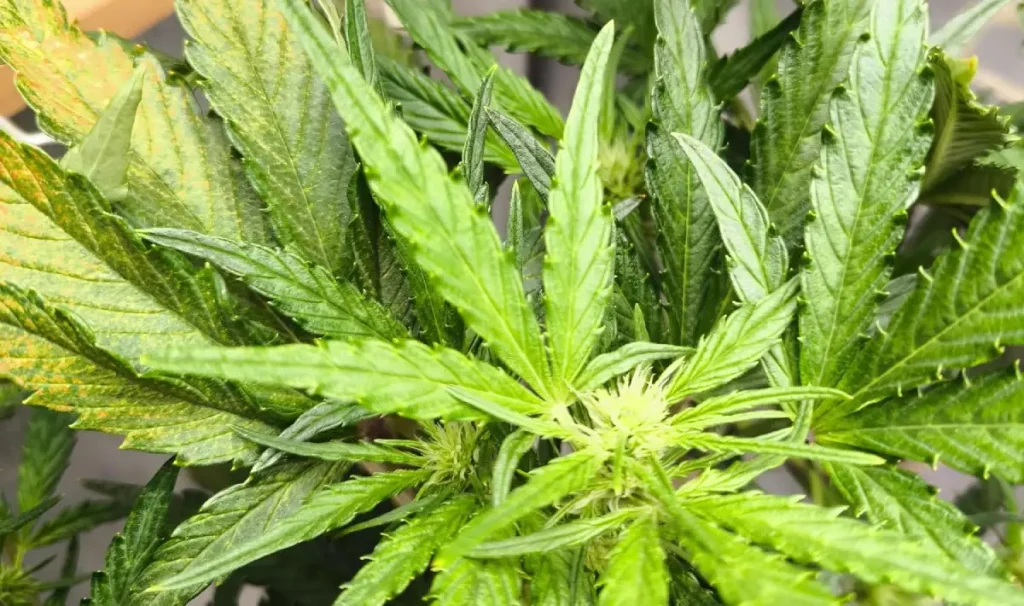
Setting Up the Growing Cannabis Space
Indoor Cannabis Cultivation
For indoor growers, Apricot Auto strain is an excellent choice due to its compact size and manageable growth. A grow tent equipped with LED lights ensures sufficient light intensity, while fans and filters maintain air circulation and odor control. Use a light schedule of 18-20 hours on and 4-6 hours off to maximize photosynthesis and promote steady growth.
Choose high-quality soil enriched with nutrients or a hydroponic system to enhance growth rates. Regular monitoring of pH levels (5.8 to 6.2) and nutrient intake prevents deficiencies. Train the plants using low-stress techniques to maximize yields without overwhelming the plant. Additionally, maintaining a consistent temperature and humidity level can prevent mold and other common indoor growing issues.
Outdoor Cannabis Cultivation
Outdoors, Apricot Auto strain flourishes in sunny, sheltered areas. Its auto-flowering genetics allow multiple harvests in one growing season, as it isn’t dependent on seasonal light changes. Ensure the plants receive at least 8 hours of direct sunlight daily, as this will enhance bud production and resin levels.
Protect the plants from pests and extreme weather with natural barriers or netting. Regular watering and feeding with organic fertilizers support healthy growth. The strain’s natural resilience makes it suitable for most climates, but optimal results occur in temperate regions. Providing nutrient-rich soil and adequate space for root expansion will further improve overall plant health and yield.
Propagation and Germination of Apricot Autoflower Strain
Start with high-quality Apricot Autoflower seeds from a trusted source. Germination can be achieved using the paper towel method: place seeds between moist paper towels, keep them warm (70°F to 75°F), and ensure consistent moisture. Within 24-72 hours, taproots should emerge, signaling that the seeds are ready to be planted.
Once germinated, transfer the seeds carefully into small pots with seedling soil. Maintain gentle lighting and avoid overwatering to prevent damping off. As seedlings grow, transplant them into larger containers or directly into the ground for optimal root development. Providing adequate space for roots during this stage helps establish a strong foundation for robust vegetative growth.
Vegetative Phase of Apricot Auto Strain
The vegetative stage of Apricot Auto is relatively short, typically lasting 2-4 weeks due to its auto-flowering nature. During this time, focus on robust leaf and root development to prepare the plant for the flowering phase. A healthy vegetative stage ensures the plant’s ability to produce high-quality buds later.
Provide ample light (18-20 hours daily) and ensure the plants receive balanced nutrients, including nitrogen, phosphorus, and potassium. Maintain proper spacing between plants to encourage airflow and prevent overcrowding. Regularly check for pests or diseases and address any issues promptly. Proper nutrient management during this phase is critical to avoid stunted growth or leaf discoloration.
Flowering Phase of Apricot Auto Strain
The flowering stage begins automatically around week 4, lasting 6-8 weeks. Buds will start forming and emitting the strain’s signature apricot aroma, which becomes more pronounced as the plant matures. This phase is crucial for determining the yield and quality of the final product.
Switch to bloom-specific nutrients with higher phosphorus and potassium levels to support bud development. Monitor trichomes closely as harvest approaches; milky white trichomes with a hint of amber indicate peak potency. Lowering humidity levels during this stage helps prevent mold and mildew, ensuring healthy buds.
Cannabis Fertilization and Nutrition – Apricot Auto Strain
Apricot Auto strain requires proper fertilization for optimal growth. During the vegetative stage, focus on nitrogen-rich fertilizers to encourage leafy growth. As the plant transitions to flowering, shift to phosphorus and potassium-dominant nutrients to support bud formation and density.
Use organic compost or pre-mixed fertilizers for convenience. Avoid overfeeding, as this can lead to nutrient burn. Regularly flush the plants with clean water to prevent salt buildup and ensure a clean flavor profile in the final harvest. Regularly testing soil or water pH helps optimize nutrient absorption.
Apricot Autoflower Strain Grow Overview
| Feature | Details |
|---|---|
| Strain Type | Autoflowering Hybrid (Indica-dominant) |
| THC Content | 18% – 22% |
| Life Cycle | 8–10 weeks from germination |
| Indoor Height | Compact |
| Outdoor Height | Compact to medium |
| Yield | Moderate |
| Flavor Profile | Sweet apricot, earthy undertones |
| Ideal Light Cycle | 18–20 hours per day |
| Difficulty Level | Easy (Beginner-friendly) |
| Best Growing Environment | Indoor & Outdoor |
Pest and Disease Control for Cannabis Growing
Prevention
Maintain cleanliness in the growing area to prevent common pests like spider mites and aphids. Use natural deterrents such as neem oil or insecticidal soap. Introducing beneficial insects like ladybugs can help keep pest populations under control, especially in outdoor setups.
Corrective Actions
If infestations occur, act quickly by isolating affected plants and treating them with appropriate organic or chemical solutions. Regularly inspect leaves and stems for signs of trouble, such as discoloration or holes. Addressing issues early minimizes damage and ensures plant recovery.
Harvesting and Curing for Cannabis Growing
Apricot Autoflower strain is ready for harvest about 8-10 weeks after germination. Look for buds with milky trichomes and orange pistils, which indicate peak maturity. Use sharp scissors to cut branches, and hang them upside down in a dark, ventilated room to dry for 7-10 days.
Once dried, cure the buds in airtight jars, opening them daily for the first week to release moisture. This process enhances flavor and potency, ensuring a premium final product. Proper curing prevents harsh smoke and maximizes the strain’s sweet apricot aroma.
Is Apricot Auto Strain Indica or Sativa?
Apricot Auto strain is a hybrid with indica dominance. This balance provides relaxing effects while maintaining mental clarity, making it versatile for various users. The indica traits promote physical relaxation, while the subtle sativa influence sparks creativity and focus.
Advantages of Growing Apricot Auto Strain
- Easy to grow with minimal maintenance, making it ideal for beginners and experienced growers alike.
- Compact size ideal for discreet cultivation in both indoor and outdoor setups.
- High resilience to pests and environmental stress ensures consistent results.
- Multiple harvests per season due to auto-flowering genetics maximize yield potential.
Disadvantages of Growing Apricot Auto Strain
- Limited vegetative phase reduces opportunities for extensive training, such as topping or mainlining.
- Moderate yield compared to photoperiod strains may not satisfy high-yield goals.
- Requires precise care to maximize potency and flavor, especially during flowering and curing.
Problems in Cultivating Apricot Auto Strain
Overwatering and nutrient imbalances are common issues. Monitor water and feed schedules closely to avoid these pitfalls. Pests like spider mites and powdery mildew can also pose challenges, but proactive prevention minimizes risks. Maintaining a consistent environment reduces stress and improves overall plant health.
Advanced Pest Control for Cannabis Growing
For persistent pests, consider integrated pest management techniques. Use biological controls, such as predator insects, alongside organic sprays. Avoid harsh chemicals to protect plant health and ensure a clean, organic yield. Regular crop rotation and sterilizing tools between grows further enhance pest control strategies.
Similar Strains
Sweet Mango Auto
Sweet Mango Auto is a robust and flavorful strain known for its tropical mango aroma and sweet citrus undertones. This auto-flowering hybrid thrives in warm climates and delivers a potent high that balances relaxation with a burst of energy. Its resilience to environmental stress makes it a great option for outdoor and indoor growers alike.
Sweet Mango Auto typically reaches harvest within 9-10 weeks, producing dense, resin-rich buds. The strain’s sativa influence enhances creativity and focus, while its indica traits provide soothing physical effects, making it a versatile choice for both recreational and medicinal users.
Original Cinderella Auto
Original Cinderella Auto is a fast-growing strain loved for its fruity, pineapple-like aroma and uplifting effects. This hybrid leans towards sativa, delivering a cerebral high that’s perfect for daytime use and social activities. It’s also popular for its ability to alleviate stress and improve mood.
With a life cycle of just 8-9 weeks, Original Cinderella Auto is ideal for growers looking for a quick turnaround. It performs well in various setups and offers generous yields of frosty, aromatic buds. Its low maintenance requirements make it suitable for beginners.
Pineapple Express Auto
Pineapple Express Auto is a legendary strain that combines tropical fruit flavors with smooth, uplifting effects. Known for its rich terpene profile, this strain exudes notes of pineapple, citrus, and hints of spice. Its balanced genetics offer a calming body high paired with mental stimulation.
Reaching maturity in about 8-10 weeks, Pineapple Express Auto is a reliable choice for growers of all skill levels. It’s highly adaptable to indoor and outdoor environments, producing abundant yields of flavorful buds. Its natural resistance to pests and mold further enhances its appeal to growers seeking stress-free cultivation.
Week-by-Week Growth Plan for Apricot Auto Strain
Germination Stage (Week 1)
Start by germinating the seeds in a warm, moist environment using the paper towel method. Keep the temperature between 70°F and 75°F. Once taproots emerge, carefully plant them in seedling soil.
Seedling Stage (Weeks 2-3)
Provide 18-20 hours of light daily with gentle, low-intensity lighting. Maintain consistent moisture without overwatering. Begin using mild nutrients to encourage early growth and strengthen roots.
Vegetative Stage (Weeks 4-5)
Encourage leaf and root development by using nitrogen-rich fertilizers. Ensure plants receive ample light (18-20 hours daily) and maintain a temperature of 70°F to 80°F. Start low-stress training to maximize potential yields.
Early Flowering Stage (Weeks 6-7)
As the plants transition to flowering, lower the humidity to 40%-50% to prevent mold. Introduce bloom-specific nutrients with higher phosphorus and potassium. Monitor the plants closely for early bud formation.
Late Flowering Stage (Weeks 8-9)
Buds begin to gain density and emit their signature apricot aroma. Reduce humidity further (30%-40%) and monitor trichomes for maturity. Stop feeding nutrients in the final week and flush with clean water.
Harvesting and Drying (Week 10)
Check for milky white trichomes with some amber hues to determine harvest readiness. Trim and hang the buds upside down in a dark, ventilated space to dry. After drying, cure the buds in airtight jars to enhance flavor and potency.
FAQs About Apricot Auto Strain
What is the THC content of Apricot Auto Strain?
The THC percentage of Apricot Auto Strain typically ranges between 18% and 22%, offering a balanced potency that appeals to a wide range of users. This moderate to high THC level makes it suitable for both beginners seeking a mild yet effective experience and seasoned consumers desiring a nuanced high. The balance in THC content ensures a gentle cerebral buzz paired with soothing physical relaxation, ideal for stress relief, creativity, and unwinding after a long day.
How long does it take to grow Apricot Auto Strain?
Apricot Auto Strain completes its life cycle in approximately 8-10 weeks, making it an excellent choice for growers aiming for a quick turnaround. The autoflowering genetics ensure that the plant transitions from the vegetative stage to flowering automatically, regardless of light cycles. This feature allows growers to cultivate multiple harvests within a single growing season, especially in outdoor environments.
What are the flavors of Apricot Auto Strain?
Apricot Auto Strain boasts a unique flavor profile characterized by sweet apricot notes complemented by earthy undertones. The taste is further enhanced by a rich terpene profile, dominated by myrcene and limonene. Myrcene contributes to the strain’s fruity and slightly herbal flavor, while limonene adds a hint of citrus zest that elevates the overall sensory experience.

